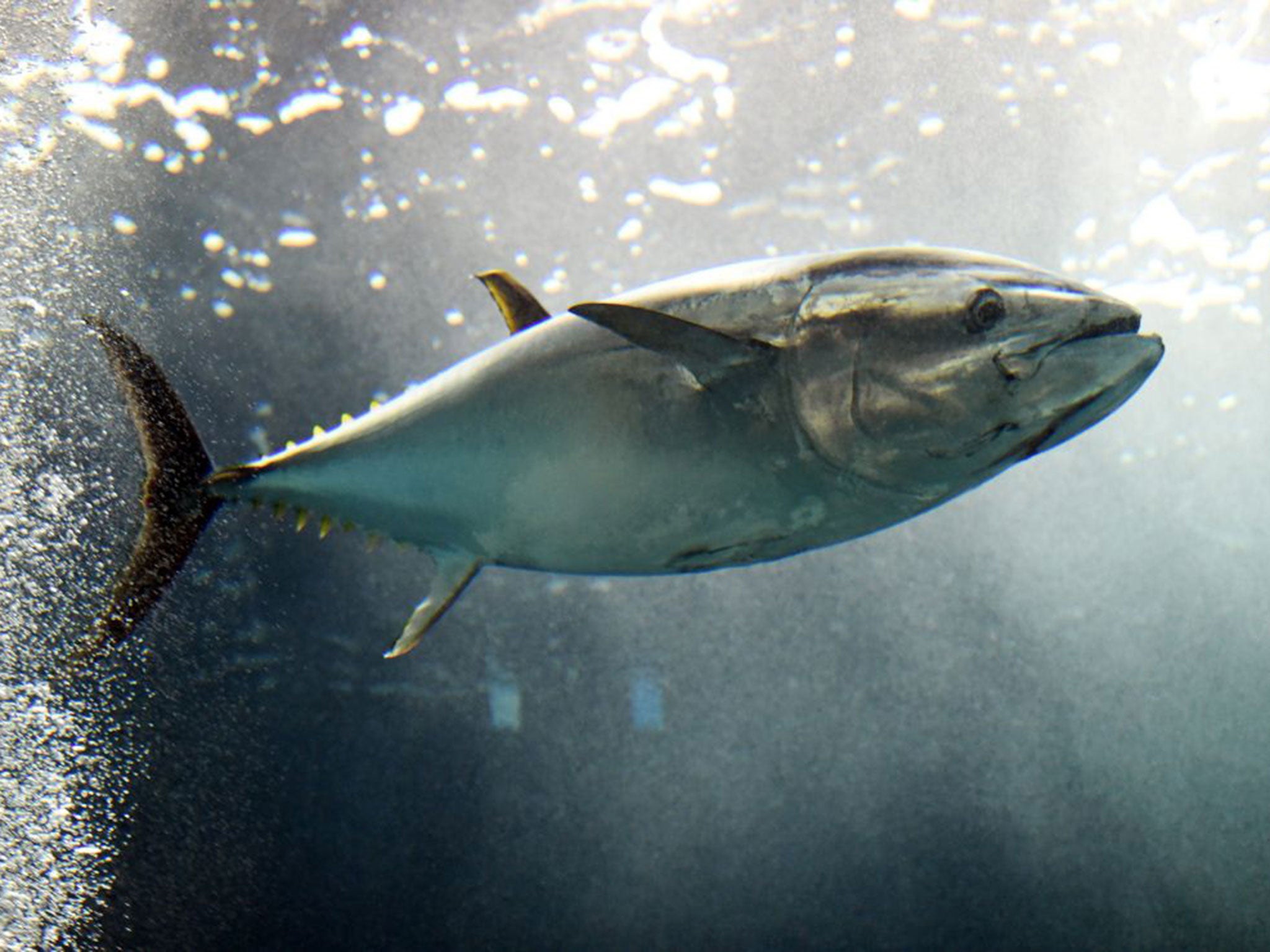The chemicals mankind dumped in the sea are coming back to poison our children
The body's first line of defence against harmful chemicals is being hampered by toxins such as DDT, PCBs and flame retardants found in fish, study finds

Your support helps us to tell the story
From reproductive rights to climate change to Big Tech, The Independent is on the ground when the story is developing. Whether it's investigating the financials of Elon Musk's pro-Trump PAC or producing our latest documentary, 'The A Word', which shines a light on the American women fighting for reproductive rights, we know how important it is to parse out the facts from the messaging.
At such a critical moment in US history, we need reporters on the ground. Your donation allows us to keep sending journalists to speak to both sides of the story.
The Independent is trusted by Americans across the entire political spectrum. And unlike many other quality news outlets, we choose not to lock Americans out of our reporting and analysis with paywalls. We believe quality journalism should be available to everyone, paid for by those who can afford it.
Your support makes all the difference.Poisonous chemicals dumped in the sea are coming back to haunt us in the fish we eat, interfering with a “critical defence system” of the body, according to new research.
The scientists warned that newborn babies are particularly at risk as they are exposed to high concentrations of the pollutants in breast milk and their defence mechanism is not yet fully developed.
The pollutants were found to hamper a tiny pump in the cells of the body, which acts as a ‘bouncer’ to kick out potentially harmful toxins.
This is normally so effective that the pump is a major problem for pharmaceutical companies as it often expels drugs too quickly, particularly those designed to attack cancer. It also protects our reproductive organs and plays a key role as an enforcer of the blood-brain barrier.
Samples of the pollutants – including pesticides such as the banned DDT, flame retardants used in upholstery foam and coolants like PCBs – were taken from muscle tissue of eight yellowfin tuna by scientists at the prestigious Scripps Institution of Oceanography in San Diego.
Such chemicals have already been found in humans and also in marine wildlife such as whales, dolphins and seals.
It had been thought that the chemicals were able to slip past the ‘bouncer’, a protein known as P-gp. But the researchers found that instead they attached themselves to it, preventing it from doing its job effectively.
Amro Hamdoun, an associate professor at Scripps and lead author of a paper about the research in the journal Science Advances, said the P-gp protein was the body’s “main line ... and first line” of defence against natural and synthetic toxins.
“When we eat contaminated fish, we could be reducing the effectiveness of this critical defence system in our bodies,” he said, adding: “We think this is going to be of greatest concern to vulnerable populations, both among humans and wildlife.”
Among the most at risk are newborn babies, partly because the pollutants are concentrated in their mother’s breast milk by a natural process.
Professor Hamdoun added: “We, all animals, have P-gp in our intestines to keep harmful things in food out. However, babies in the first six months of life have relatively low levels of P-gp in the intestine.”
How dangerous these chemicals are to human health is not yet fully understood, but Professor Hamdoun said more should be done to stop people from eating fish with high levels of the toxins.
“I eat fish and I consider fish to be a very healthy food. The issue we are raising is there are some fish that are quite contaminated and I think we need to work harder to eliminate those from our food supply,” he said.
“The level of exposure to these chemicals through seafood is going to depend on how much fish people eat. We think it might behove us to think about whether our food is clean or contaminated.”
Kenneth Linton, a professor of protein biochemistry at Queen Mary University of London, who was not involved in the research, stressed the importance of P-gp to human health.
“One of its main functions appears to be to limit accumulation of toxic compounds … by preventing their uptake from the gut and also causing their secretion from the liver back into the gut,” he wrote in an email.
“[It] is also highly expressed in ‘sanctuary sites’ sites, such as the brain and the reproductive organs where it provides a barrier to entry of toxic chemicals into these sensitive organs.”
He said the Scripps study had shown the pollutants, which he said were “mainly byproducts of the petrochemical industry”, were “potent inhibitors” of P-gp.
“This has the potential to affect the accumulation and distribution of other, more toxic, chemicals (including therapeutic drugs) in the body,” he added.
Asked how serious the consumption of such chemical was, Professor Linton said: “It’s not killing us at present, but if we continue to let it happen … maybe this is a forewarning we should take heed of.”
The Marine Conservation Society said the study highlighted the need to stop treating the seas as a dumping ground for chemicals and other waste.
“Research of this kind shows that there may be many unexpected consequences on human health in future as a result of our throwaway society,” an MCS spokesman said.
“We urgently need new policies and action from Government, new practices from industry and behaviour change from the public to halt the stream of waste entering our seas.”
Join our commenting forum
Join thought-provoking conversations, follow other Independent readers and see their replies
Comments